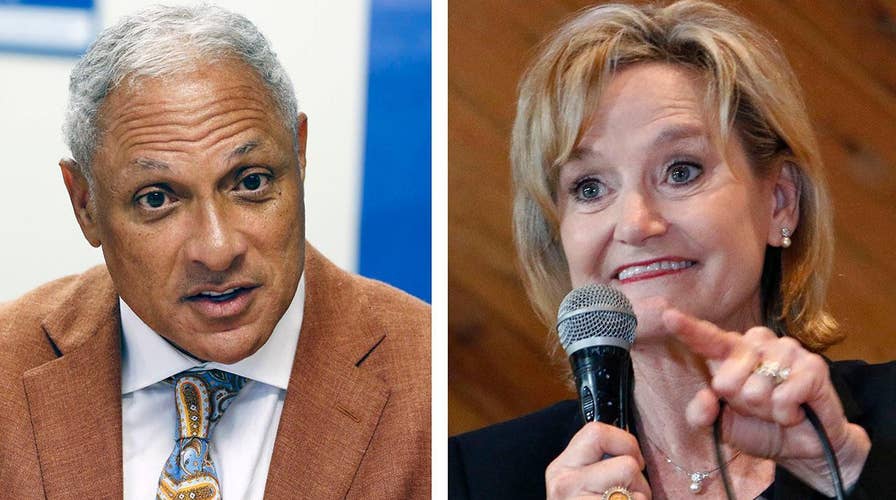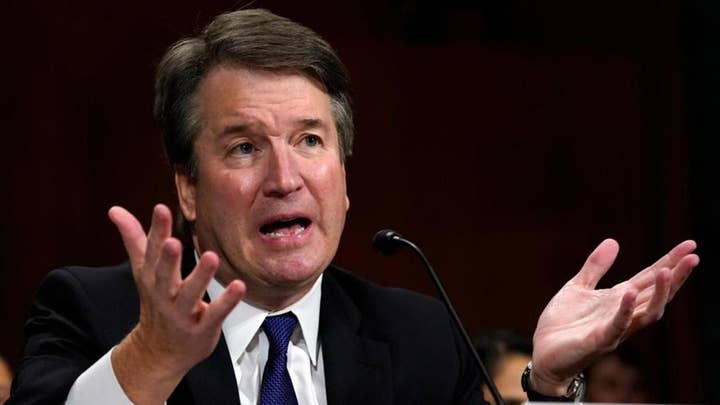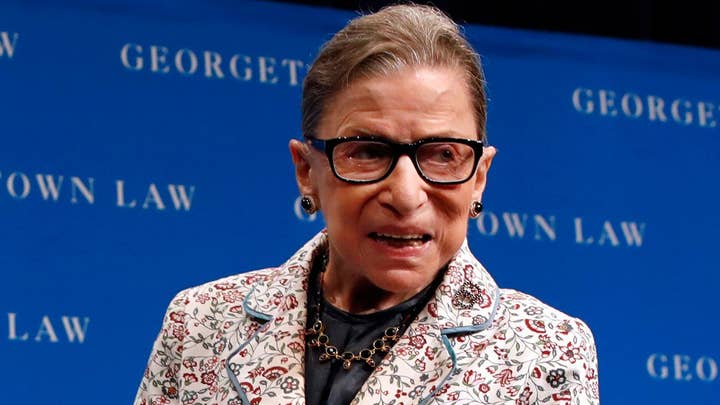Cindy Hyde-Smith wins US Senate runoff in Mississippi
Republican Sen. Cindy Hyde-Smith defeats Democrat Mike Espy in special election; Peter Doocy reports from Jackson, Miss.
Cindy Hyde-Smith’s victory Tuesday night in the Mississippi Senate runoff shores up the GOP’s majority in the upper chamber and could help them avoid a repeat of the drama that surrounded the confirmation of now-Justice Brett Kavanaugh for future judicial picks.
Hyde-Smith, who was appointed earlier this year by Mississippi’s governor to fill retiring Sen. Thad Cochran’s seat, handily defeated insurgent Democratic challenger Mike Espy in the special election runoff with a commanding margin of 54.4 percent to 45.6 percent, according to state election officials.
While the GOP lost control of the House in this month’s midterms, it gained seats in the Senate and Hyde-Smith’s win means the advantage will increase to 53-47.
TRUMP CONGRATULATES HYDE-SMITH ON HER 'BIG WIN' IN MISSISSIPPI'S SPECIAL ELECTION
One of the most significant consequences is it smooths the way for Trump’s judicial picks to get confirmed by the Senate, and potentially avoid the kind of drama that struck Kavanaugh’s confirmation over the summer.
Kavanaugh was accused of sexually assaulting women in college and high school, but vigorously and repeatedly denied all the claims made against him. Republicans largely backed Kavanaugh, noting the lack of evidence as well as some discrepancies in the accusers’ stories. Democrats called for further investigation into the claims, with others saying the accusations were disqualifying.
Such sexual-assault allegations would be explosive regardless, but they also paralyzed the confirmation process because Democrats had leverage -- the GOP's razor-thin majority left little room for defections.
It was not known until the final minutes before the vote that Kavanaugh would be confirmed. He was ultimately approved 50-48, mostly along party lines, but only after Sen. Jeff Flake, R-Ariz., demanded and secured a one-week delay to allow for an additional FBI background investigation into the claims.
While there are no Supreme Court vacancies currently, there are 136 vacancies in the federal courts and 69 pending nominees. Senate Majority Leader Mitch McConnell, R-Ky., who made confirming Trump’s judicial picks a top priority in 2017 and 2018, had indicated that he wants the pace to continue.
“I think we’ll have probably more time for nominations in the next Congress than we’ve had in this one, because the areas of legislative agreement will be more limited between a Democratic House and a Republican Senate,” McConnell told reporters this month. “I don’t think we’ll have any trouble finding time to do nominations.”
“We intend to keep confirming as many as we possibly can for as long as we’re in a position to do it,” McConnell said, according to McClatchy.
It is also unclear when the next Supreme Court vacancy will appear. While no justice has yet expressed an intention to retire in the short term, Justices Ruth Bader Ginsburg and Stephen Breyer are both in their 80's.
Ginsburg, 85, recently fell and was briefly hospitalized with broken ribs. She has since returned to the bench, but the incident has reinvigorated speculation as to whether she would retire in 2019. According to Axios, Trump has also predicted that he will also appoint a replacement for Justice Sonia Sotomayor, 64, who suffers from type-1 diabetes.
"Her health," Trump said, according to the outlet. "No good. Diabetes."















































